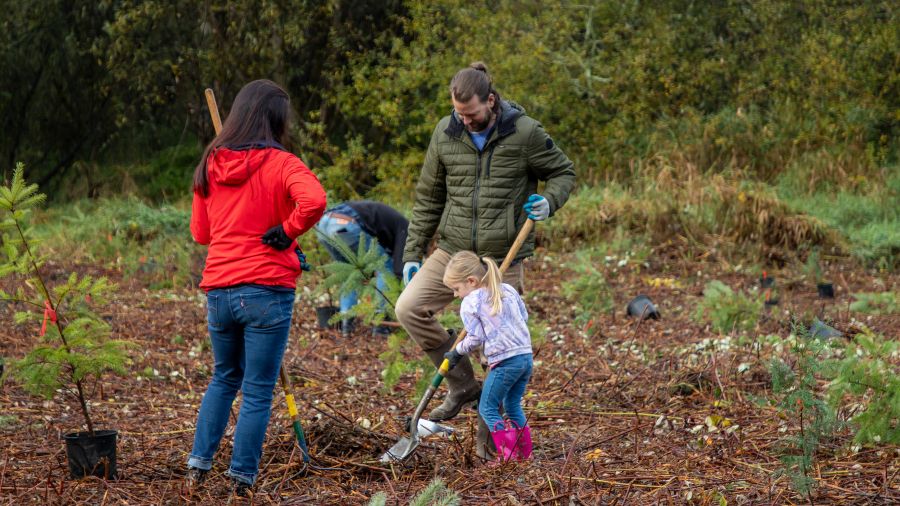Dori: ‘This has to be fixed’ says caller after friend’s suicide attempt when police can’t respond
Aug 31, 2022, 5:28 PM | Updated: Sep 1, 2022, 8:50 am

Sue-Ann Siegel goes over notes after taking a call from a man experiencing anxiety about the coronavirus as she monitors the Montgomery County Hotline from her home office March 18, 2020 in Chevy Chase, MD. The covid-19 pandemic has led to a big spike in calls to mental health and suicide prevention hotlines. (Photo by Katherine Frey/The Washington Post via Getty Images)
(Photo by Katherine Frey/The Washington Post via Getty Images)
[Warning: content in this story may be sensitive for those who have dealt with suicide]
When a distraught friend – armed with a gun – made a “scary and frantic phone call” threatening suicide to Brian Hayvaz late Tuesday night, the former Tumwater firefighter did what most would do: he called 911 while rushing to his friend’s aid.
What Hayvas didn’t expect: a return call from a police official, apologizing for being unable to respond. Under a new state law – passed on mostly party lines in 2021 – law enforcement professionals are not allowed to intervene in suicide attempts unless another person is also in danger.
“ ‘You don’t respond to an individual who states they want to kill themselves and have guns in the house?’ ” Hayvas recalled his post-911 conversation on Wednesday’s Dori Monson Show. “He (a sergeant) apologized and informed me I was on my own.”
Hayvas told Dori that he knew his suicidal friend was a military veteran and owned weapons. Without any law enforcement or emergency response backup, Hayvas told Dori, his crisis training kicked in.
“I’ll come over,” Hayvas recalls telling his friend by phone. “We’ll get through this.”
When Hayvas arrived at his (friend’s) home, he found him outside. After urging his distraught friend back into his apartment, “he then grabbed a 12-gauge shotgun, put it in his mouth, and placed his finger on the trigger,” Hayvas recalled to Dori.
“I reached for the gun, moved his finger, and grabbed the weapon away from him. I then checked the gun and it had a 12-gauge slug in the chamber. The safety was off. This was a serious attempt at suicide.”
When an exhausted Hayvas returned home after accompanying his friend to a hospital emergency room, he emailed Dori in the middle of the night about his frustration.
“Is this where we have ended up?” he wrote. “The police won’t even respond to an immediate life threat? I worked in this very county as a firefighter/paramedic for many years. This isn’t the way it used to be. We didn’t expect our citizens to play the role of cop or firefighter.”
State law created by House Bill 1310 – a measure proposed by outgoing Rep. Jesse Johnson (D-Federal Way) and passed 55-42 on mostly party lines – has been seeing the fallout ever since. The 2021 law has left law enforcement officials around the state questioning its intent and effectiveness in a crisis.
In their Wednesday interview, Hayvas told Dori he doesn’t blame law enforcement or 911 call center teams for their lack of response in his friend’s case. In the return call he took from the police sergeant, Hayvas said, the officer “was anguished. They want to respond. They want to help. I really feel we have tied their hands.”
In a related twist, just last month, Washington state initiated its new 988 nationwide crisis phone line. It was designed to consolidate various hotlines and phone services for any caller needing a response for mental health or substance abuse treatment struggles. The Washington State Legislature passed House Bill 1477 in 2021 in response to a 2020 Congressional National Suicide Hotline Designation Act. It was meant to complement the current 911 emergency line. Washington funds its 988 program by taxing phone and internet lines at about 40 cents per account.
It is unclear whether Hayvas’ call to 911 was forwarded to the state’s new 988 call center.
But it is the law from House Bill 1310 that has him most concerned.
“This has to be fixed,” Hayvas believes. “We the people want it. The police want it too. I don’t blame the (police department) for this in the least. I could tell the officer who called me was genuinely distraught that he could not respond. It makes me sad Dori.”
Suicide prevention resources:
Call, text, or chat 988 to be connected to the National Suicide Prevention Lifeline (NSPL). This service is confidential, free, and available around the clock, 365 days a year.
Dial 988 if you are having:
- Thoughts of suicide
- Mental health crises
- Substance use concerns
- Any other kind of emotional distress
Dial 988 if you are:
- Worried about someone you believe may need crisis support.
988 does not replace any crisis call centers in Washington state. It is an addition to the state’s network of crisis center providers. The 10-digit NSPL number, 1-800-273-TALK (8255), is still active.
Listen to Dori Monson weekday afternoons from noon – 3 p.m. on KIRO Newsradio, 97.3 FM. Subscribe to the podcast here.








